We’ve had just about 24 hours to let Google’s IO 2013 keynote marinate, and aside from being terribly busy with all that was announced I’ve been doing a lot of thinking since then. We hear you: most consumers feel the Google IO keynote came off as uneventful and lackluster. But if you take a step back and read between the lines, you might find that Google IO was actually quite refreshing.
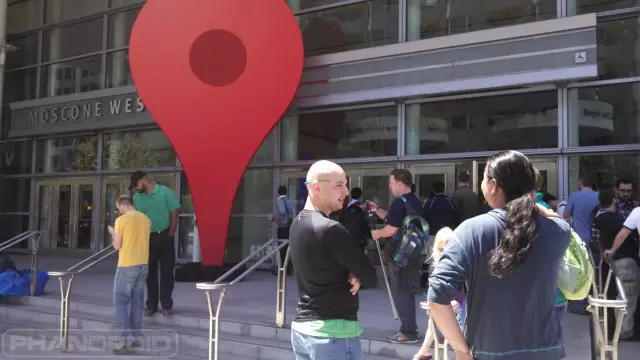
Before you decide to jump down my throat, please hear me out. I’m not saying I wasn’t initially disappointed with the lack of new device announcements (we did get a Nexus-fied Galaxy S4, though) and the introduction of Android 4.3, but I’ve been able to take a look at this from a different perspective. Google made significant, key advancements despite the fact that another .1 wasn’t added onto Android’s version number.
Innovation without fragmentation
The biggest expectation many had was the introduction of Android 4.3. Hell, a last minute Google blunder hinted we might be seeing it at IO as a developer page mentioning the new version of Android went live (and was subsequently taken down). Three hours later, and we were effectively disappointed. Google didn’t say a word about Android 4.3, or any new version of Android for that matter. So what gives, El Goog?
Well, if you were paying attention you’ll realize that we got a lot of great new stuff. For starters, Google Play Games is going to add achievements, multiplayer, and leaderboards to many new games. Google didn’t need an entirely new version of Android to add that — all it took was a silent update to the Google Play Services framework. In fact, many games are already boasting the new features in a wave of updates that have gone out yesterday and today.
Google Hangouts was introduced and will replace Google Talk, Google+ Messenger, and maybe even Google Voice once the new SMS-based features arrive. This is Google’s all-in-one chat solution that will include video, and will be cross platform. This was important, and all it took was an app download from the Google Play Store.
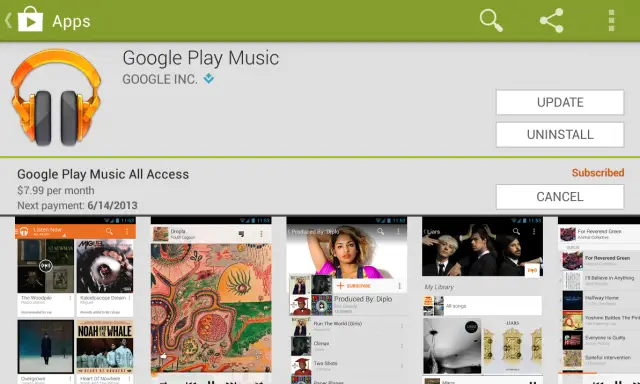
Then there was Google Play Music All Access, Google’s new music streaming service that will give you all-you-can-eat tunes for a monthly fee. It came with a brand new update to Google Play Music, and it has replaced the likes of Pandora and Spotify for many people, including yours truly. Again, all of that was accessible with a simple app download from the Google Play Store.
Starting to notice a pattern here? What I’m getting at is quite simple, really. Google addressed the one issue that has been played up by the tech world since the beginning of the platform’s inception — that’s right, I’m talking about fragmentation. There was never an easy way to tackle this problem. Google tried to do it by getting OEMs and carriers to commit to updates for their products at least 18 months after launch.
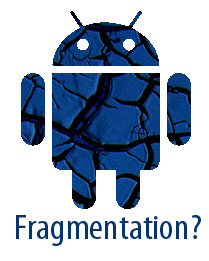
Unfortunately, that was more of a loose pledge than a requirement — Google can’t force OEMs and carriers to support their products any more or less than they want them to. And it’s not just because these folks don’t want to, but because their hands are being tied by many other factors. Software testing cycles are sporadic and unpredictable, and what may seem like an easy task is actually a very complicated one. Different OEMs have different skins, and said skins are impacted by updates to the OS in different ways. Carriers have to worry about their network, and are forced to add more time to an already timely process.
While it may not be immediately obvious, this is probably the best way Google could tackle fragmentation (even if it wasn’t intentional). By not announcing and releasing a new version of Android, and instead opting to update apps in order to add new features, Google has found a way to slow down the Android development software cycle and allow OEMs to catch up.
It’s fundamentally different to Apple’s approach in that Google didn’t have to sacrifice its level of progression in order to get most or all of its users these new features. Continued innovation without fragmentation is the ultimate goal, and thanks to Android’s design it’s possible to at least alleviate the pains that come with the natural downsides of the software cycle. Users should be happy that Google is finding a way to do that without having to leave out a huge chunk of its user base.
It’s not just about Android
Let’s not forget that Android isn’t Google’s only concern. As such, it’s imperative to remember that Google IO isn’t, and has never been, totally about Android. It isn’t even about Google Chrome/Chrome OS specifically. So what is it about, you ask? It’s the web, plain and simple. It’s about using all platforms and avenues to our advantage for the sole goal of improving people’s lives.
Yea, sure, Android is pretty big and important, and it’s easy to lose sight of the fact that Google still makes most of its money based on searches and advertising. But the fact of the matter is everything Google announced to this point will impact each and every one of us in different ways (some more appreciated than others).
The evolution of Google Maps is important, is it not? Both the web-based and Android versions of the app are getting upgrades sometime soon. It will change the way we explore the world, whether you’re looking to discover new places and learn new things, or if you simply want directions to your local mini market.

Google showed off new conversational voice searches for desktop browsers, and while it doesn’t seem like that directly affects Android, you’d be surprised to learn that it actually does. With the Knowledge Graph and these new voice-based searches, Google has made a statement — it will cement its position in advancing search technology, and that can only help anyone who uses Google Search (including those of us who use Google Now) in the long run. It means a bigger investment in the aforementioned Knowledge Graph, and more intelligent search features. Whether you’re on Android, iOS or just any old browser, that’s a pretty big deal.
Continuing on the “web helps life” point, Google Play for Education is a very significant initiative that will help get our young ones deep into technology at early ages. The impact of said initiatives might not be appreciated for years, but when more and more young engineers sprout from our colleges with a keen interest in web technology (and technology in general) it will pay off. This keynote made a statement that was far more important than you and I realize.
Focus on developers is key
Remember ahead of the Google IO keynote when Android boss Sundar Pichai warned us that Google IO would be less about product launches and more about helping developers? Well, he wasn’t bluffing, and you should be thankful for that. Let’s not forget that IO is, and most likely always will be, a developers’ conference. It’s an event to help developers harness the power of the web, whether it be with Android, Google Chrome, or other platforms.
This ties back into my first point in a way. Without developers, Android is nothing. All the innovative apps and games you enjoy on a daily basis are because of the very people who this event was meant for, and it’s in Google’s best interest to treat them that way. “But consumers are important too,” you’re probably thinking. You’re right, but what you don’t know is that, by helping developers, Google’s directly addressing consumer needs as well.

Those of us who have been with Android since the beginning know it more than anyone else. The Android Market, as it was once called, wasn’t always a bustling metropolis of apps. We were happy to have the hundred or so apps there were, and each day we wished for more and more. It’s because of Google’s major focus on helping developers that we have close to a million apps close to five years later.
You need look no further than Google Glass as an example. Most people probably wouldn’t buy Google Glass with limited functionality and the current crop of apps, but with the new Glass Development Kit developers will be able to make the kinds of apps that would entice you to spend who knows how much on a pair. As such, Glass won’t be a ghost town by the time it makes its way to the store shelves of retailers everywhere.
Most people I know yawned and shrugged off the developer-centric announcements Google made in its keynote. Most people don’t care about stuff like Android Studio and the IntelliJ-based IDE, new Google Play Services APIs and features for hooking into Google location services, and more. But the fact is it’s those tools and services which allow our beloved developers to create the feature-rich apps we’ve come to know and love. That’s what IO is for, and we should begin to understand that more clearly after this week.
So what about consumers?
Google never said it was going to stop paying attention to the people who have driven over 900 million device activations to date. Things are still being worked on behind closed doors and Google just doesn’t feel the need to reveal them right now. Whether they drum noise up on the web, with a specialized event, or possibly even a separate consumer-centric blowout show at another point in the year, you know Google is going to deliver the goods sooner or later.
We will get Android 4.3. We will get new Nexus devices. We will continue to see innovation from Google in a way that gets consumers excited. But yesterday and the rest of this week wasn’t about any of that, and it’s time for us to come to grips with that.

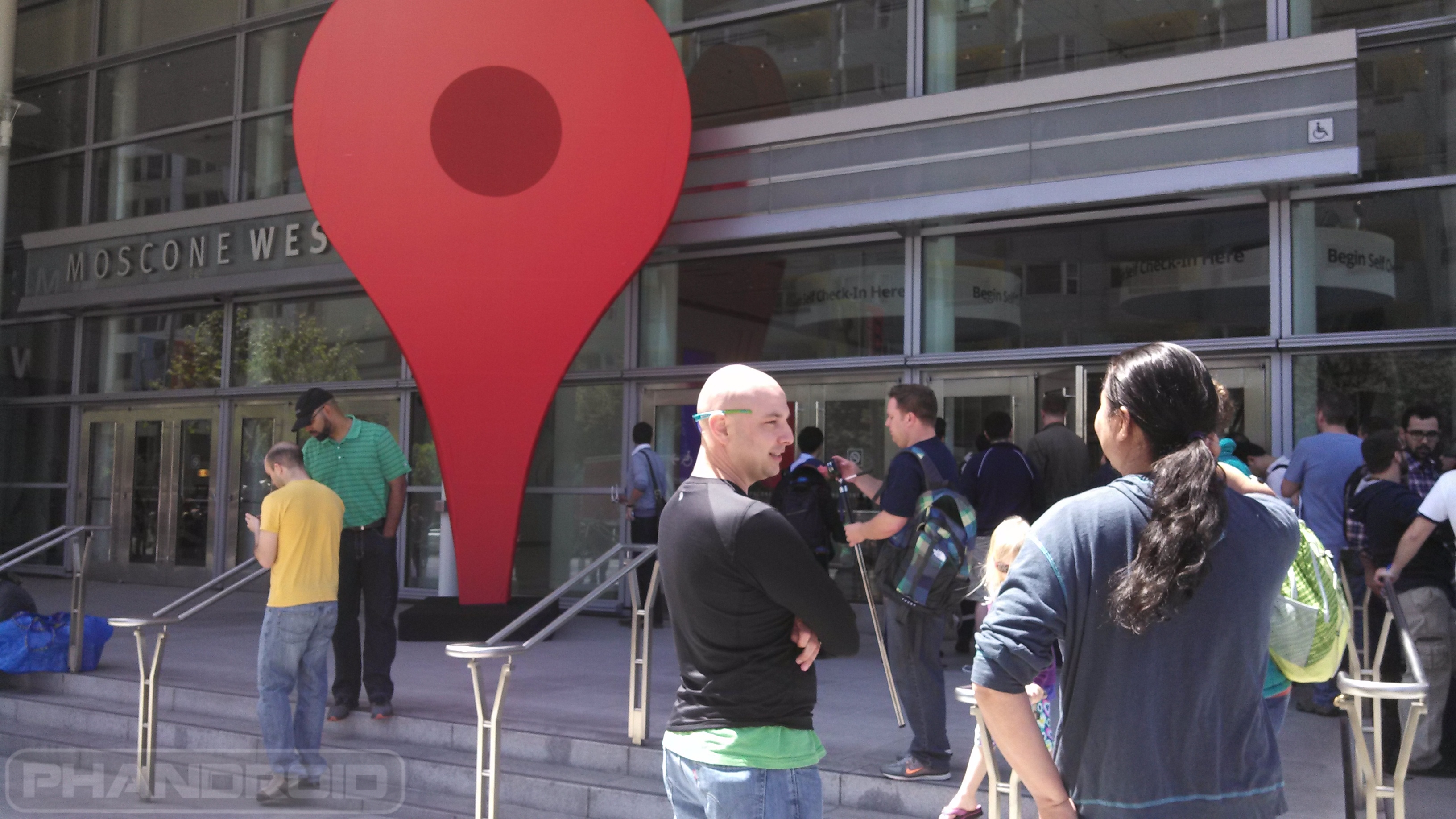
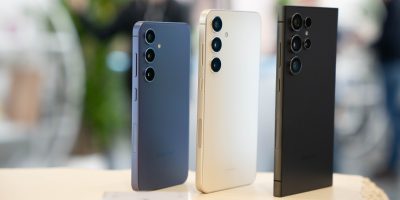
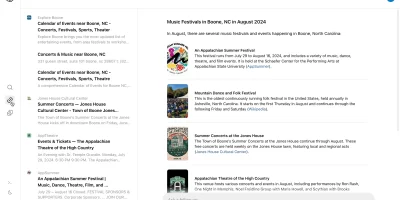
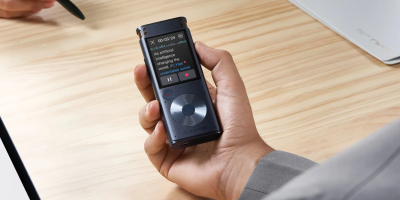

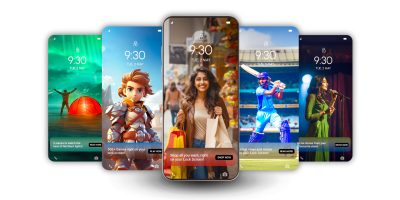
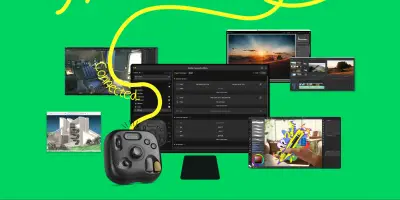




I really wasn’t expecting this. Probably the best editorial that has ever come out of this site.
Well written Quentyn, props. You hit the nail on the head.
About time a writer takes center stage and voices his opinion in a way that we’ll all understand. It wasn’t such a bad Google IO at all. Plenty of news for developers to finally get excited over and immediate downloads for Google users that have been a long time coming.
Thanks for the great compliment, James! I felt like a lot of people were thinking the same way I was, and felt obligated to be the one to lay it all down.
I agree spot on work, I agree with that, I feel the event was proof google is working on polishing what it has rather than throwing money at the hot new idea, searching for stability to jump off from.
Exactly. One of the best pieces ever written about Android. Fantastic article.
I agree with this statement, great article. I said this before the IO is for developers not consumers. There ate many other tech shows that address consumers, such as the launch event Samsung is well known for.
Couldn’t agree more! I thought the keynote was very impressive. I think they are really headed in a good direction and I can’t imagine anything even close to this coming from Apple or Microsoft this year. My only disappointment with the lack of an Android update was the hope that they’d fix the super annoying Bluetooth bug (where after turning BT on and off a few times it stops responding requiring a reboot). The starting happening with the introduction of the new BT stack in 4.2 and there are tons of bug reports filed that Google is ignoring. For people who use BT daily, this is a real pain. Other than that — I’m fine with Google slowing down the Android releases in favor of stability.
Well, Apple has been awfully quiet for the last few months, WWDC is going to be huge this year. A new version of OSX and iOS are both planned, and iOS is expected to be getting a fresh coat of paint with Jonny Ive now in charge of the platform.
I’m not sure what Microsoft is up to, they’ve also been pretty quiet since their WP8 launch aside from the recent Lumia event.
I believe Android switched to a new Bluetooth stack recently which broke everything. I believe they’re changing stacks again in 4.3 to support Bluetooth Smart.
I’m sure we’ll get a huge Android related (and hopefully product focused) event sometime in the fall as usual!
Actually, I do expect similar updates from Apple this year… They have been rumored to be working on their own radio implementation for a while too. They may not have a service to compete with the games framework though.
And the most significant update to the UI is supposedly coming in the next version of iOS.
I really do hope MS and Apple have great announcements this year. Competition is good for all :)
Yeah I also think the rom devs are coming out with a lot more innovative stuff than google is. I just want them to focus on the apps.
No KLP isn’t a big deal, Android should do a yearly update anyway and 4.1 came out last summer, 4.2 added almost nothing. I think KLP for this fall would be fine. I personally have always like Apple’s iOS model of a major 1.x update once per year and a minor mid-cycle x.1 update in between.
As far as the Keynote itself, I’m not a developer so it was terrible. Nothing interesting at all.
I agree that fewer and more quality releases are needed. Case in point, the recent releases (4.2.x and above) have caused performance decreases and for some pretty much killed all the benefit that was introduced with “project butter”. That said, some UI features were nice but overall, they will lackluster.
That’s the -ONLY- reason why I was hoping for 4.3. So they could merge the features of 4.2.x with the performance of 4.1.2. But it seems we won’t see that for quite some time and that is truly a disappointment. They need to fix that before releasing the next major revision.
Right about the performance, we need improvements there, and they also need to decrease RAM usage some way, Android’s RAM usage is the worst of any mobile OS, like atrocious. Let’s hope 5.0 brings more performance improvements.
No offense, but clearly you don’t understand how Linux works. Linux will use as much RAM as available, so even if you put 3GB in a phone the OS will consume it all if you run enough processes. Only when the OS needs RAM for a new process will it purge the memory. So your phone will always seem like it is using a lot of RAM.
No offense, but I talk more about how a single app can consume lots of memory, mainly foreground apps. Settings app takes up to 60MB sometimes, launcher takes 70-80MB, etc. Cached processes are fine, the barely take any RAM, but foreground apps consume a lot. I hear it’s because of Java, but whatever it is, it’s not very nice.
4.2.2 is much faster than 4.1.2 on all of my devices.
I don’t know that you’re right about performance decreases and 4.2, JMS55C, but I do wonder:
What improvements will now require an android version upgrade?
– adding a “paste” button into the keyboard? (It is crazy now pointing to where you want the cursor then touching it again for the context menu to paste and inevitably moving the cursor at the same time).
– adding more robust USB device support? Drivers for more file systems on external disk drives?
One additional thing I want is better Office compatibility, but it seems clear this can be done at the app level, and even with server-side stuff and html5.
And I wonder why google didn’t tout this all? @quentyn:disqus seems to be spot-on in his analysis. With jelly bean, android has finally made it to the point where most of the features we users are aware of as even being possible for a mobile OS are included. Apple no longer serves as much of an inspiration on what can be done.
This seems to mark a turning point in just who is innovating in the mobile sphere, ESPECIALLY if google can keep putting more and more improvements into existing android versions bypassing the carriers’ perpetual need for control.
I wholeheartedly agree with this, 100%. I’ve attended Google IO in the past, and aside from the keynote, it was 100% targeted at developers. The people who went for the gadgets (and there were more than a couple) looked utterly bored, wandering the halls by themselves, since they couldn’t find a session that was dumbed down enough to taste. This year, Google did the same thing with the sessions, only they targeted the keynote to developers, also. I’m pleased as punch.
I also remember the good ol’ Android Marketplace, and recall my weekly sifting through it, looking for new apps. Took me about an hour to go through ALL the apps in the marketplace at the time, looking for anything new that I might want to try out. I couldn’t do that much beyond 1.6, and by the time 2.1 came out, I had given up completely. If I were to try it today, It would be a losing battle, as more apps are published and updated every hour than I could review in the same amount of time.
Very well written editorial, Quentyn, well done, you’ve restored some of my faith in your journalistic capabilities. It was even spellchecked!
Leave it up to good ol’ PhaseBurn to drop a compliment and an insult at the same time. ;) Thanks!
Hell, its still on my bucket list and i’m not a developer by any means. The goosebumps that I feel every year is what I want to go for! Give me a Chromebook Pixel ($1299, more than pays for your ticket!), I’m not going to turn you down but, its not why I want to go.
Yeah all those people who paid for I/O just for the gadgets are probably feeling really stupid right now. As they should.
They got the pixel. =.3
But I was thinking about going. Glad I read this. I used to think it was an event for consumers. I guess I can take it off my bucket list and maybe one day attend because I’m the developer. Hmm…
Ditto.
The developer changes have been great and I enjoyed most of the sessions.
Ironically, they ran out of chromebooks and the little android toy they gave away. I didn’t bother trying to pick it up until last night because I didn’t want to lug it around :-)
Lack of comments on this well written article from the
perspective of Quentyn being a tech reporter and obviously an Android user
shows you the quality of reader on this website. Anytime there is a new
announcement of a service or product there are more negative comments on either
the article itself or the service or products being offered. I just want to
thank Quentyn for being devil’s advocate
Don’t forget all the Apple posts. Like honestly, they could announce an Android powered toaster and the top comment is likely to be something along the lines of
Hah, take that Apple! #HOLOYOLO
Agreed, great article.
I think the tone and content of your post did a better job than another Android blog I commented on regarding this matter.
My only small criticism is that Google didn’t address “fragmentation” with this change in delivery of core services and apps; IE the “Android experience”.
—
It’s perfectly valid to say that since Google is now making an effort to update core Google services and apps across the larger ecosystem such that differentiation for the (user level) Android experience is more cohesive.
—
I mean Google could always push new apps out to devices, but they just happened to start doing this for their core apps & services which is a good thing, but it still lies on the side of differentiation vs fragmentation.
Fragmentation as in what affects developers at the SDK layer which is still locked to firmware / OS updates is alive and kicking on Android at least for native apps. This is what makes apps potentially unstable across OS versions and devices.. IE the tech definition of fragmentation:
—
Fragmentation is what happens when OS and device differentiation fails to honor standards and contracts of developer APIs.
—
Unfortunately Google has yet to crack that nut and mitigate fragmentation in the more invasive form.
I’m of the opinion that Google will never be able to fully mitigate fragmentation without major changes. It’s just the nature of the beast that has become Android. Google’s desire to keep the platform open for OEMs and carriers to do with it what they will is also one of its most damning faults.
Fragmentation is still a big problem and will be for quite some time, but I truly think we’re finally seeing the first bit of success from any solution tried to date. Nothing will be perfect — in fact, I don’t think the improvement will be drastic at all — but we can only be grateful that Google is trying to address the issue and maintain a good balance of general principal and user experience.
And I think Google can go a long way toward solving user experience issues by keeping core services and apps as up to date as possible across the largest swath of the ecosystem. The play game services alone are great to see for developers.
Some other blogs ran stories that this new approach ended fragmentation, so that ruffled more feathers than yours which also gave a good impression of I/O too.
What I envision and have been working toward for a bit now is to provide a mechanism on Android at essentially the SDK layer that can auto-update versus being hard locked to firmware / OS versions; indeed that would essentially be “major changes” that you indicated above. Basically it would allow the layer native apps depend on to be updated freely of OS bumps thus bugs and mistakes that don’t get caught and are inflexible with the current way Android functions could be updated with fixes and new innovations without going through the whole ODM / carrier update process.
I can wait for it to release with the N5
that sums it up very nicely!
Bravo, bravo. Excellent writing and I agree with all your points. I hadn’t really looked at the aspect of limiting fragmentation, you are right.
I agree whole heartily with this article and your take on the Keynote. With official updates slowed down by Carriers and Manufactures, why is everyone in a rush to see updates. Not every device even has 4.1.2 let alone 4.2.2. I for one would rather wait a year for an update. Improving on the Play Store experience is great, That is the one thing that all device share, that is not dictated by mfc. or carrier and can be improved on across all versions currently avail. And just as a reminder, without devs, Apps wouldn’t exist, and the I/O is a dev conference for the most part.
I love it all, but I just wish they had included a Play Games Hub– a place that shows all your games’ achievements and scores all in one place. That would have been very helpful.
As it is now, most people won’t even notice that Google Play Games even exists! They’ll just see a Google+ icon, or a controller in their apps and not even worry about it.
Also, mutliplayer in games is currently limited to people in your circles. What gives?
This is complete nonsense. Heck, if it were true it would be an improvement, but it just doesn’t even fit the facts.
First of all, readers should stop assuming that announcing a new version of android is the same thing as big gadget giveaways. Unfortunately the gizmo seekers still came out ahead, and developers will still have a hard time getting tickets again next year. Don’t get me wrong, the chromebook pixel is awesome, and I hope all of these folks put it to good use. But saying the developers won and the gadget seekers didn’t come out ahead would be the complete opposite of what happened.
To anyone paying attention, there are many things to suggest that something was planned that ended up falling through. whether that was android 4.3 we may never know for sure, but it seems plausible. To pretend that Google did that on purpose as a favor to developers is ridiculous.
Just as absurd is the claim that they want developers to write cool stuff for glass. Giving out four explorer invitations to non-developers for every (non-Google) developer to get one (according to Google’s own numbers) and then telling a room full of developers trying to learn it’s api that there may not be a way to get a device or even an emulator before it’s released to the public, does not sound much like trying to get developers to write cool apps.
Sure there’s probably good reasons for all of these things, but wishing its all part of a grand scheme to help developers is just plain silly.
Yes that’s all great. App upgrades (which is essentially all this was) are always great. But that doesn’t mean the lack of Android 4.3 was a GOOD thing. It just means I/O wasn’t bad. Would it have been bad if they did all this AND announced 4.3? No. So your entire article is basically pointless. Acknowledge the good things that happened at I/O, that’s cool, but you don’t have to try so hard to suggest the lack of 4.3, or an updated Nexus 7, was a good thing. These are 2 separate issues. It doesn’t have to be one or the other.
I can understand the point that I/O is about developers. That doesn’t mean its GOOD that OS upgrades aren’t part of it. That just means it’s a separate thing and that’s how it is. Maybe they should have a second event annually JUST for products and OS upgrades. So we’re not all confused about it.
Well put Q. I was however very impressed with the developments and updates announced this week. Google made some great announcements at this conference. Developer or not, it’s all good stuff and exciting when you really think about the leaps and bounds Google is about to help technology take.
I did not even expect to hear about it. Hell, I would have been pissed hearing about the next version of Android that won’t be coming to the my latest and greatest device anytime soon. I am pleased where Android is at. Don’t really have an itch for anything new yet. Like you mentioned, I am pleased when apps get an overhaul. And Google seems to be hard at work at meeting that goal.
is it over? No X-phone?
I do understand where you are coming from but I don’t want to see Google update Android only when they cannot fit the new feature they want in their closed sourced Google Play Services. However, I welcome all new features (within a reasonable limit).
Maybe.they have another event planned for device launching with a new os I’m thinking more around October we just don’t have any information yet.
Google is laying out the base for what’s to come! All the stuff they released this year was incredibly exciting, if you have an imagination. Most of you who were complaining just don’t realize the huge improvements this stuff is going to make on your daily life. Just take the new google maps API, the accuracy improvement along with the battery improvements are tremendous! Now imagine that put into the developers who make fitness apps. They can now make apps that never have to be turned on or tell it what excise you’re doing, it will do it all by itself. Google is trying to take the device out of your way so you can enjoy life. Automation is Key to that goal and Google is the forefront to that! Great article, and thank you Google!
Echoing what other’s have said here, I agree with this article 100%. Great points. Forward thinking. Big picture point of view. You nailed it. Thanks for the great article Quentyn.
Great article! I don’t understand why many don’t talk about the speech and Q&A session Larry had though. For him to come out, barely talking, and give such a passionate speech on the future of technology and the disappointing decision tech companies are doing just to get more business was extremely inspiring to hear and has made me more thrilled that choosing computer science to currently study is the way to go. He then gives a Q&A session!! what?! How many CEO’s do you know would do that in front of the world watching. Inspiring, just inspiring
Now thats a great article. Honestly when I looked back this year IO was slightly subdue but was one of the best IO. Android is now ripe and the fruitages are the services google introduced this year or you can say Android just exhaled. Give it sometime to inhale again and we will see KLP, new Nexus, Google TV, and dust in the Apple and Microsoft eyes.
Well said!
Silly thing is that while consumers were highly disappointed, it was 1 of the best if not the best IO for a developer there’s been. A lot of good stuff there.
The problems with Android 4.3 wasnt the new features. To me, the problem was the lack of redesign. I think Android need some much more fresh to show than new features. So, to me, this situation is ok, lets wait more, for some more fresh than the usual.
Are you an idiot or do you just play one on the internet? The Holo redesign isn’t even complete yet and you want them to redesign it all over again?
You know how long it took me to teach my family members to use ICS after their phones were upgraded from Gingerbread?
It’s Android, download a new Launcher and call it a day.
If the developers were excited, that’s enough to make me happy. The updates to Play Music and Play Books were enough to satisfy me until more substantial updates arrive. Not sure how I feel about the new Hangouts yet though.
They gave us exactly what developers have been asking for! It was an amazing keynote for this developer conference. Great article and I also agree that this might be the best original piece ever posted on Phandroid!
Good perspective, Quentyn. Fragmentation is a problem and I agree it’s good for Android to expand functionality without leaving more devices and customers behind. My everyday, always-connected Android phone is running 4.0.4 so Google Now is not available for me where it would benefit me most. It’s a sore-spot that Google has added Now for owners of iOS devices. I initially thought Goog was limiting the audience for Now while they tuned their backend services which make Now possible. I no longer believe that is true.
“using all platforms and avenues to our advantage for the sole goal of improving people’s lives.” Really Dude? The SOLE GOAL here is to make money for Google…I get that you’re a PHAN, so am I, but let’s not delude ourselves about what Google’s sole goal always is and has been. If they can do it while not being evil, they will. But they have also shown that they are not above evil either…Having said that, and I really needed to, I agree with your premise here that they are making things better while working around the fact that my 18 month old Rezound will never see Jelly Bean. Totally agree.
I didn’t expect it really because 4.2 just came out in Oct/Nov so its too soon. They don’t need to do like Linux and update every 6 months.
Every time I read “Google can’t force OEM’s to…” YES THEY CAN. Google owns Android, Google allows companies to use android for free. They need to mandate basic requirements. Want to use Android OS for free? THEN YOU MUST UPDATE IT. Give OEM’s only 2 weeks maximum. This companies are big and powerful, 2 weeks is more than enough time. You don’t want to update it? Then you cannot use Android for free. Bam, Fragmentation gone.
Thank you. The problem is people have been spoiled by always getting updates, new android versions during google io. With jelly bean 4.1 android can now finally take a break from such updates, hell even if we don’t get another update till next io, other mobile os’s are well behind at this moment and realistically won’t surpass jb even with 2 updates. I say less updates and more focus on other things google that will evenally all connect with mobile and you don’t need updates for that. Just a phone that will or has jelly bean.
Omg. They’re showing us that they are getting rid of fragmentation through in app updates. Genius. Very clever.
I am happy they switched from Eclipse to IntelliJ, way better experience…
I’m not a developer by any means, but I’m a mid-level amature techie entrenched in the Android platform and I am excited about this news and I agree with the author. Success starts at the bottom. Quality products make for good customer experience. Where do quality products come from, well supported developers. I now have a product better than Pandora to stream music. I have some new features on other apps. That’s fine for me. I don’t need a new update that may or may not be compatable with my devices. Just provide better support for existing products, that will retain customers and attract more customers when crapple keeps pumping out iphad 6, 7, 8 etc…